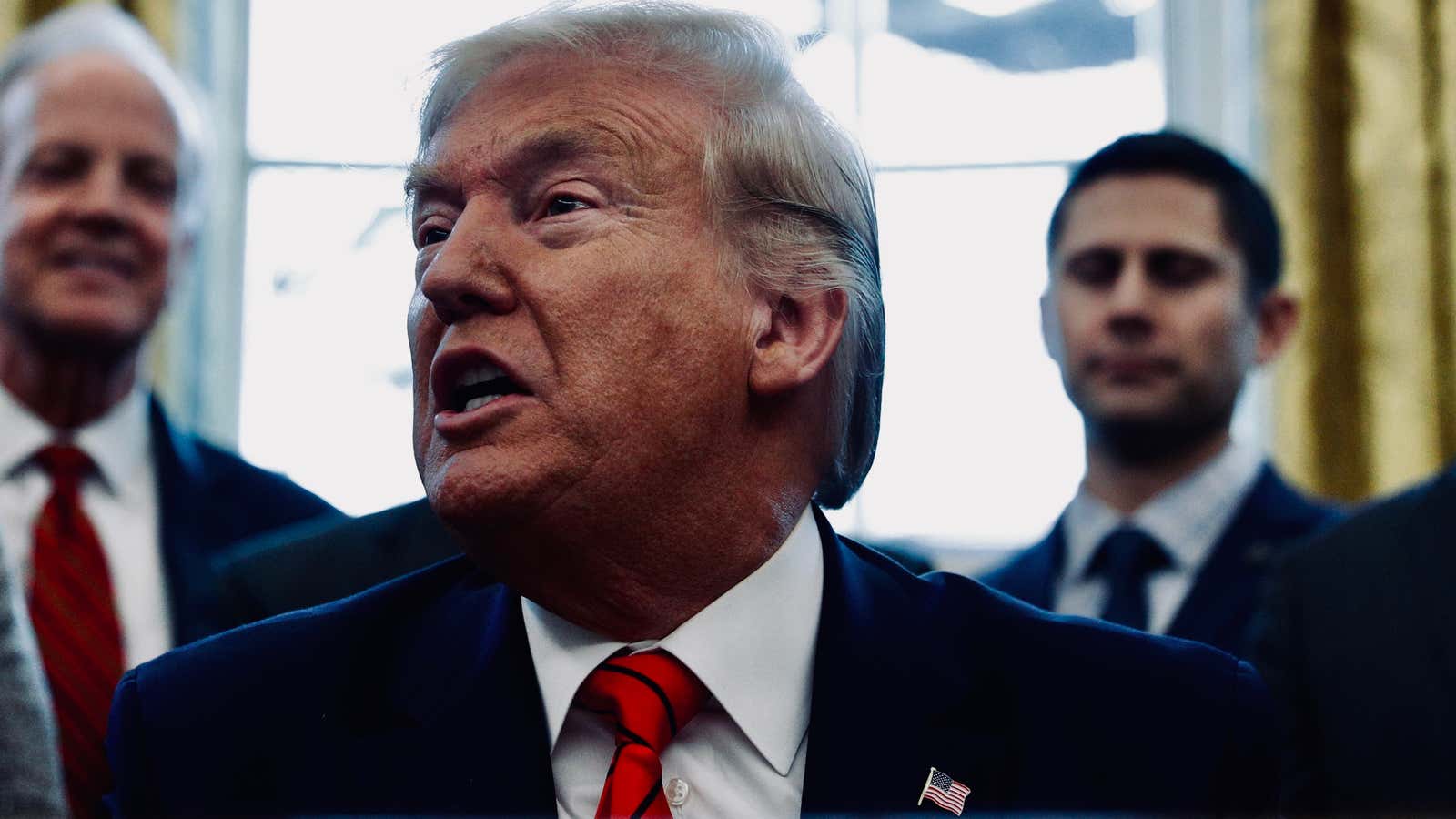US president Donald Trump is not a lawyer and never played one on TV. What he’s always been, thanks to his family fortune, is a boss. And—as his catchphrase on the reality TV show The Apprentice demonstrated—the kind who relishes the power to say, “You’re fired!”
Now that Trump is commander-in-chief, and has survived his Senate impeachment trial, it’s more apparent than ever that he’s also a micromanager with a distaste for government officials rivaled only by his respect for certain convicted criminals.
Having “removed” lieutenant colonel Alexander Vindman from the National Security Council last week because he testified under subpoena during the House investigation into the president’s allegedly corrupt Ukraine dealings, Trump announced yesterday that the military would “look into” disciplinary action against the high-ranking career soldier. (He also made sure Vindman’s twin brother Yevgeny, a council attorney handling ethics issues, was reassigned.)
It’s a stark contrast to the admiration the president expressed for Navy SEAL Edward Gallagher, who stood trial for war crimes last year and on whose behalf Trump intervened repeatedly while chastising military prosecutors. Ultimately, Gallagher was acquitted of all but minor charges—based on technicalities, not exoneration. So Trump didn’t have to exercise his pardon power on the man’s behalf, as promised, but stepped in to ensure that he couldn’t be punished at all, contravening the Navy’s rules.
The micromanager-in-chief also chided federal prosecutors this week. Decrying sentencing recommendations submitted in the case of Roger Stone, a Trump associate, the president intervened via tweet on Monday, complaining about the injustice of the proposed punishment. The Justice Department then announced it would recommend a lighter punishment, the four prosecutors withdrew from the matter (one resigned from his job altogether), a new sentencing memo was filed, and this morning the president congratulated attorney general William Barr for “taking charge of a case that was totally out of control.”
The president isn’t wrong in one respect: The situation does seem to be totally out of control. Trump is accusing longtime government lawyers of going “rogue” for following the law.
The prosecutors were doing their jobs, and properly. The recommendation for Stone was within statutory guidelines, as conservative attorney and criminal law professor Orin Kerr of the University of California at Berkeley pointed out in response to Trump’s morning tweet decrying the recommendation that Stone spend nine years in prison.
The notion that Trump would use his position to undermine the justice system is no longer that shocking, although the audacity does continue to astound legal experts. By characterizing all legitimate lawyering as mere political ploys, the president has managed to convince his supporters that he is the victim of a Democratic plot that only a strongman like him can stop. Thus, the new heroes of the Republican majority are dubious characters like Gallagher and Stone, who are elevated and championed despite proven wrongdoing.
The long-term consequence of this fantastical and melodramatic approach to American justice is erosion of the rule of law itself. As Walter Shaub, former director of the Office of Government Ethics, explained in a morning tweet, “To put DOJ’s politicization in context, remember its mission is to defend the rule of law and it’s full of lawyers whose lives are focused on law. Having toppled the institution dedicated to law, it’ll be easier to topple the ones devoted to things like energy, money and killing.”
